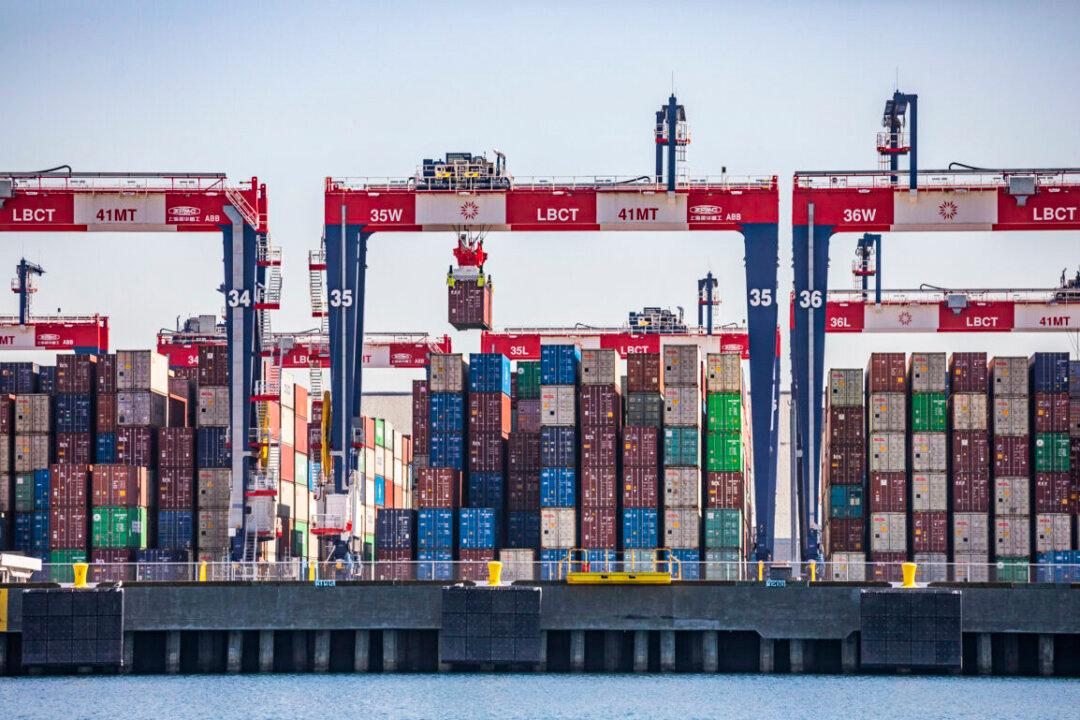Governors of Texas and Florida are urging container ships struggling to get into California ports to reroute to their states, where they say there is capacity to handle all the cargo that needs to be unloaded and transported.
In Texas, Gov. Greg Abbot has launched an “Escape California” campaign, suggesting that companies who wish to avoid logjams should consider directing their cargo ships away from California and instead, sending them to ports on the Texas coastline.





